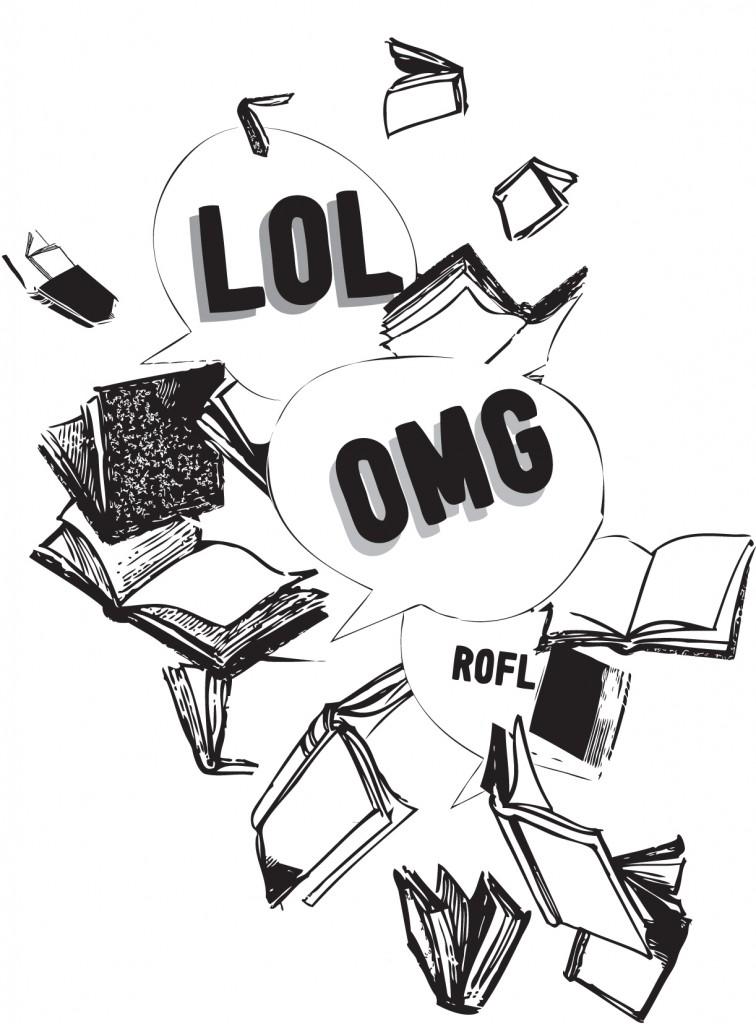“LOL,” “OMG” Added to Oxford Dictionary
July 13, 2011
Published: April 13, 2011
The highly-accredited Oxford English Dictionary (OED) has officially adopted abbreviations such as “OMG” and “LOL” as part of the English language, and while scholars in the English field advocate the OED’s decision, they say these words don’t meet the academic standard the same way they meet social and cultural standards.

“The OED’s decision to add Internet and text jargon to its over 600,000 word compilation stems largely from our Web 2.0 society,” Anne Fernald, associate professor of English at Fordham College at Lincoln Center (FCLC) said. She also said her first encounter with web abbreviations “would have been before Facebook about eight years ago, on a blog or a message board.”
“Don’t assume that because a word is in the OED, it’s been given some kind of blessing,” said Patricia T. O’Conner, author of the grammar guide “Woe Is I” and blogger at grammarphobia.com.
“Read the entry. The word may be labeled as ‘slang,’ or as ‘colloquial’—that is, common in speech but not in writing. Remember, the F-word is in the OED, too. That doesn’t mean the editors endorse it.”
Fernald said that she would never advocate or accept the use of “LOL” or “OMG” in an academic paper nor does she ever use them under casual circumstances like in texting and email. Despite this, she is excited about the OED’s adoption of these abbreviations. For her, the OED is documenting the history of the language.
“Dictionaries work in two ways. They can be prescriptive, what you should say; or descriptive, what people are doing with the language now. The OED is so awesome at describing the history of the English language: what people are saying, how they’re using it, how it’s changing. And that’s where the vitality lies,” Fernald said.
O’Conner also described the OED as a history book of language. “Dictionaries don’t affect language. Just the opposite—language affects dictionaries. Lexicography is a very misunderstood science. Words aren’t added to dictionaries because lexicographers like them or approve of them. Words are added because they’ve come into common usage and are expected to stay there. And by ‘words,’ I mean initialisms, acronyms, and abbreviations, too,” O’Conner said.
Sharai Rivera, FCLC ’11 and an English major, agreed and said, “There are always new words being put into the world. A dictionary is supposed to tell you what words you don’t know.”
On possible controversy the OED could face from scholars and academics, Fernald said, laughing, “There are going to be people who see this as yet another sign of the decay of civilization. I just wish they had a better sense of humor. Because it’s Oxford, it’s really hard to imagine how you could criticize them for documenting the fact that people use LOL.”
O’Conner was also confident about the OED’s decision. “The Oxford English Dictionary is very careful about what it adds, because words that go into the OED never come out. A word has to have a history, and if you look closely at these new additions, they didn’t come along yesterday,” she said.
Rivera said the OED’s adoption of these new words won’t discredit the dictionary because “obviously the language is changing.” Instead, having “LOL” and “OMG” in the dictionary reflects a digression of the English language, she said.
“We’re losing our ability to communicate. Is the fact that we’re texting or social networking changing the way we interact socially? Yes, people are behind the computer screen so much in this growing culture,” Rivera said.
As an aspiring teacher, Rivera made it clear that although she will never accept these abbreviations on an academic level, she will be completely immersed in where this is going. Rivera said, “I’m pretty sure there is going to be another shift, especially with technology becoming so advanced. If I completely deny it, it might come back at me. I need to learn new things, be progressive.”
Fernald also said she is unsure of the future of the evolving English language. “What is the future? I wish I knew. It will probably go in a direction I can’t even anticipate. That’s my hope, that’s most interesting.”









